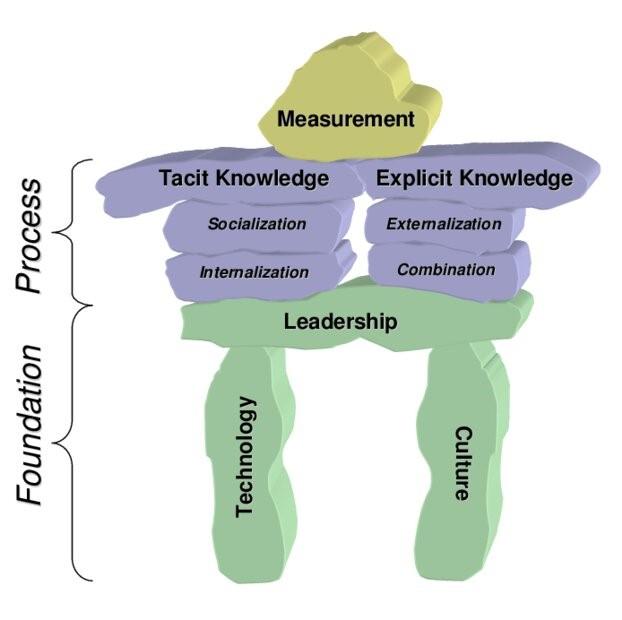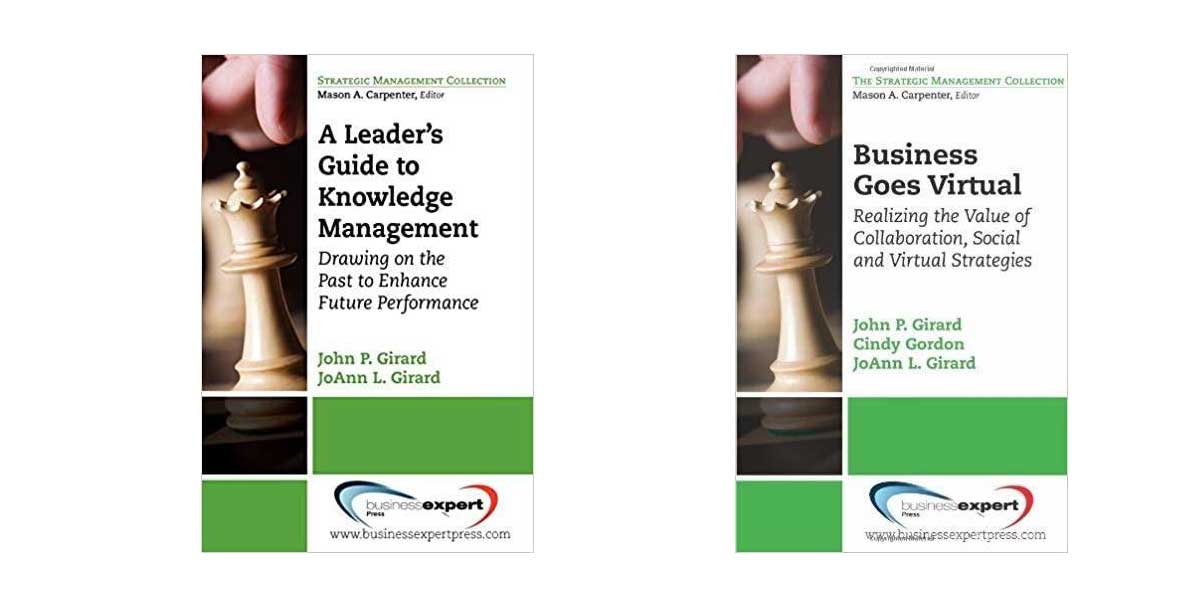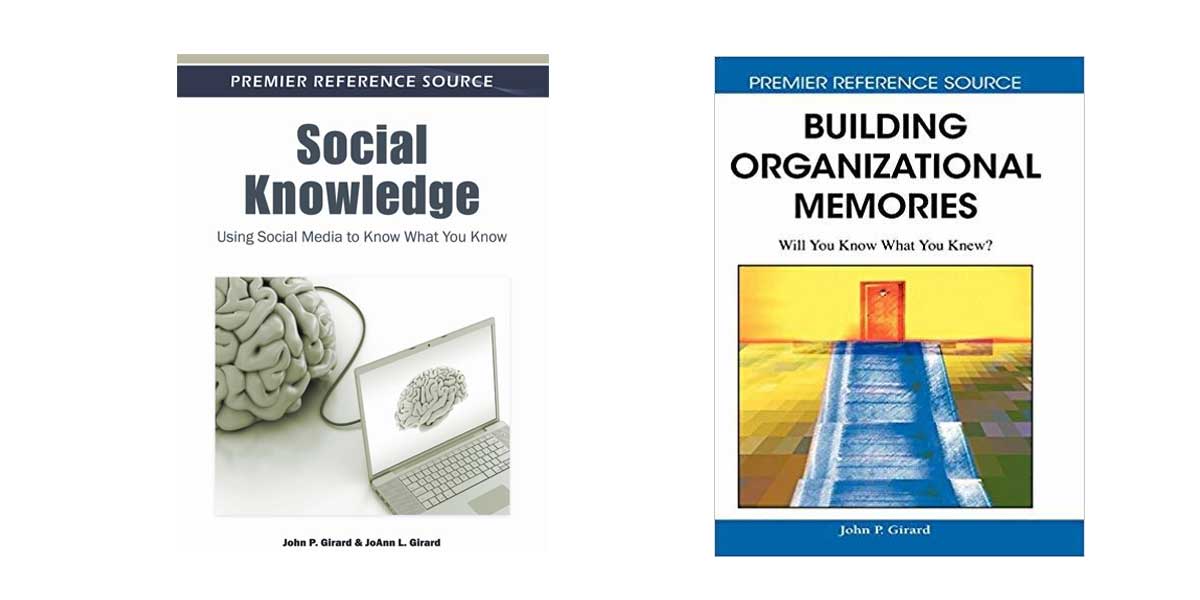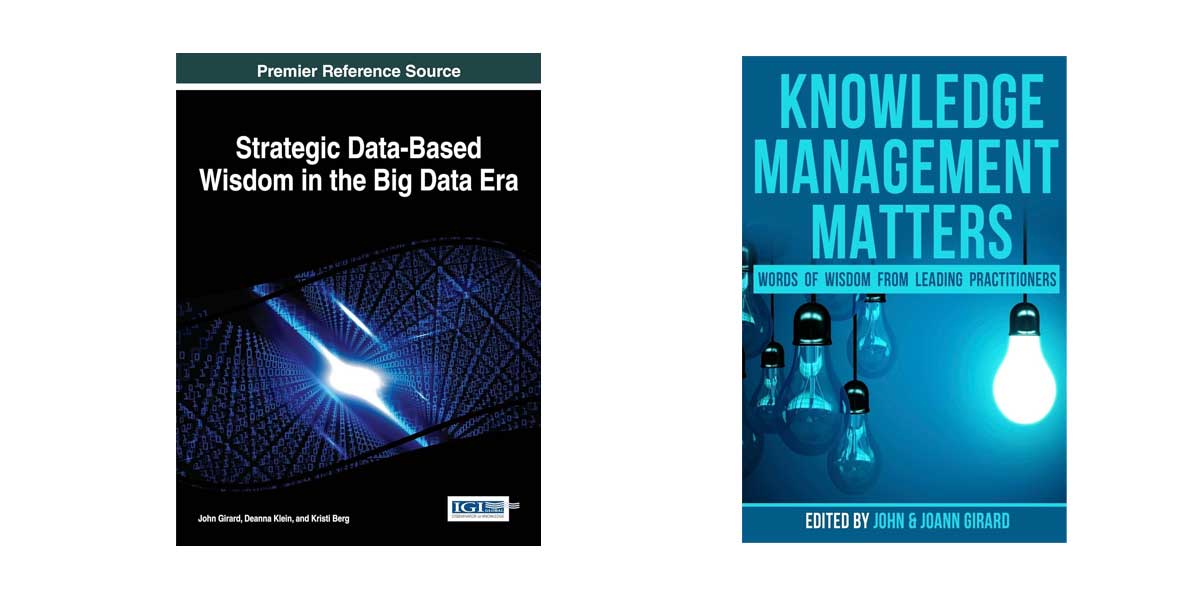Lucidea’s Lens: Knowledge Management Thought Leaders Part 80 – John Girard

Stan Garfield

John Girard is a former professor, storyteller, consultant, author, and editor, and was at one point the Director of Knowledge Management at National Defense Headquarters in Canada.
He gave presentations about technology, leadership, and culture, and his research interests included knowledge management, social media, virtual business, innovation, and globalization. In his military career, John had experience as a leader, trainer, policy officer, human resource manager, and project manager in the public sector environment.
John was the Peyton Anderson Endowed Chair at Middle Georgia State University, and Professor of Management at Minot State University in North Dakota.
The Inukshuk: A Canadian Knowledge Management Model

The Inukshuk, as shown above, is an excellent model of Canadian knowledge for a variety of reasons. First, Inuksuit are well-known symbols in Canada and play an important role in our history and tradition. Second, most Inuksuit resemble people, to remind us that it is people who play the most important role in knowledge management – knowledge management is simply not possible without people. Finally, while most Inuksuit are similar, they are nonetheless distinct from one another, much as each knowledge management implementation will be unique.
Books




Knowledge Management Definitions
For many years, I resisted offering a definition for knowledge management because whenever I included a definition in a talk this would become the main focus of attention. It seemed many people would zero in on a particular word or concept and often ignore the larger message of the talk. After years of sidestepping the question, JoAnn and I developed a general definition that we felt described the essence of KM. Recognizing that a single, non-segment specific, definition might not serve everyone’s needs, we often recommended “definition seekers” search the web.
To simplify this search process, we have gathered a collection of more than 100 KM definitions. We have very deliberately provided a broad selection of KM definitions: some are from academics, while others are from practitioners, some are from the government, others from the for-profit sector, and still others are from the not for profits. We also tried to include definitions from a variety of counties.
A frequency analysis of the 100 definitions determined the most common words appearing in KM definitions were: knowledge, organization, process, information, use, share, create, and manage. Based on this review, we propose the following definition:
Knowledge Management is the process of creating, sharing, using and managing the knowledge and information of an organization.
Without a doubt, people will question some of the definitions. We welcome the debate that will almost certainly follow.
Knowledge Sharing as an Enabler of Virtual Business
The omnipresent connection that is becoming commonplace in the 21st Century provides an
opportunity for business leaders to create value in ways that simply were not possible only a decade ago. Today we are witnessing tremendous growth in virtual businesses, most of which are applying one of four key strategies. The “any place, any time” strategy focuses on providing high quality service 24/7 by ignoring traditional geographic challenges. The “people know best” strategy harnesses the power of everyday people to create value. The “everyone has a stake” strategy considers the stakeholder view of the organization and guides leaders in tapping this vast store of wisdom. Finally, the “real in the virtual world” strategy offers incredible opportunity for real businesses to sell their wares in the virtual world.
The success of most virtual business is the result of four critical enablers coming together in the right balance: social technology, visionary leadership, collaboration culture, plus virtual worlds. This so-called TLC+V (technology, leadership, collaboration, and the virtual) of virtual business has suddenly combined to create exciting and uncharted business opportunities waiting to be harnessed. Some refer to this new discordant environment as “weapons of mass collaboration.” This new collaborative and more connected world is more adaptive, more agile, more fluid, more virtual, and finally, more collaborative and quite frankly more refreshing, fun, and inspiring.

Stan Garfield
Please enjoy Stan’s blog posts offering advice and insights drawn from many years as a KM practitioner. You may also want to download a free copy of his book, Lucidea’s Lens: Special Librarians & Information Specialists; The Five Cs of KM from Lucidea Press, and its precursor, Proven Practices for Promoting a Knowledge Management Program. Learn about Lucidea’s Presto, SydneyEnterprise, and GeniePlus software with unrivaled KM capabilities that enable successful knowledge curation and sharing.
**Disclaimer: Any in-line promotional text does not imply Lucidea product endorsement by the author of this post.
Never miss another post. Subscribe today!
Similar Posts
Lucidea’s Lens: Knowledge Management Thought Leaders Part 106 – Hubert Saint-Onge
As the creator of the Knowledge Assets Framework Hubert has shaped how businesses integrate strategy leadership and knowledge sharing to drive performance.
Lucidea’s Lens: Knowledge Management Thought Leaders
Part 105 – James Robertson
James Robertson is a pioneer in intranet strategy and digital workplace design helping organizations create seamless employee experiences. As the Founder of Step Two and a respected industry voice he has shaped best practices in content management portals and digital experience design.
Lucidea’s Lens: Knowledge Management Thought Leaders
Part 104 – Vincent Ribière
Vincent Ribière advances knowledge and innovation management through AI creativity and KM. Explore his work in academia research and industry leadership.
Lucidea’s Lens: Knowledge Management Thought Leaders Part 103 – Tony Rhem
In this edition of Lucidea’s Lens: Knowledge Management Thought Leaders we highlight Dr. Tony Rhem a leading expert in AI big data information architecture and innovation. As CEO of AJ Rhem & Associates Tony has shaped the fields of knowledge management governance and emerging technologies.






Leave a Comment
Comments are reviewed and must adhere to our comments policy.
0 Comments